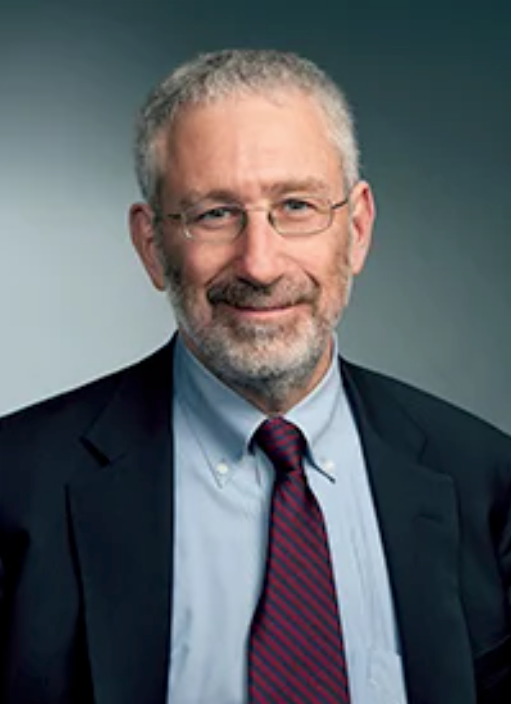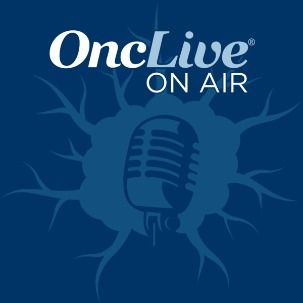Article
Missteps Highlight the Need for Objectivity in Science
Author(s):
Although the spectacular success associated with the development of several safe and highly efficacious vaccines and therapies for COVID-19 has once again confirmed the remarkable impact of advancements on public and individual health, we must also acknowledge recent stunning examples of the failure of scientifically oriented government agencies to provide objectively valid nonpolitical recommendations, policies, and conclusions.
Maurie Markman, MD

This is an awkward time for the scientific community. Although the spectacular success associated with the development of several safe and highly efficacious vaccines and therapies for COVID-19 has once again confirmed the remarkable impact of advancements on public and individual health, we must also acknowledge recent stunning examples of the failure of scientifically oriented government agencies to provide objectively valid nonpolitical recommendations, policies, and conclusions.
The most recent example is the severely criticized report from a World Health Organization (WHO) investigative team that visited China with the intent of exploring the origin of the virus that causes COVID-19. Access to vital data was blocked by the host country and the report itself had to be approved by the Chinese government.1 Is it possible that such an inherently f lawed effort can be considered scientifically objective? As stated in a recent editorial in The Wall Street Journal, “The document is best understood as a whitewash heavily influenced by the Chinese Communist Party and Westerners with conflicts of interest.”2 Those described as having a “conflict of interest” are internationally recognized scientists.
There is no intent in these comments to suggest an alternative conclusion to that reached by the visiting WHO scientists and their Chinese colleagues, but rather to suggest, as noted by experts in this scientific arena, that the process undertaken here may reasonably be viewed more as theater than as a critically essential and objectively valid epidemiologic investigation.
The goal of discussing this shameful, even disastrous excursion by members of the international scientific establishment into geopolitical politics is to highlight the impact of such nonsense on the public’s support, both in the United States and worldwide, for the fundamental integrity of the scientific mission itself.
In addition, the inability of leaders of the scientific community in Europe to agree on a strategy to investigate and subsequently interpret findings involving a small number of thromboembolic events possibly associated with the AstraZeneca’s COVID-19 vaccine also must raise doubt among many members of the public regarding the reliability of official governmental pronouncements about the safety of this and other vaccine products.3,4
Unfortunately, these are not the only serious episodes arising from the COVID-19 pandemic that have challenged the objectivity, validity, and basic quality of the scientific enterprise. The authors of a recently published manuscript highlight “the failure of the scientific enterprise in its initiatives to address the COVID-19 outbreak as a consequence of the disarray attributable to haste and urgency.”5 The report noted the widespread uploading of research results into publicly viewable preprint internet servers that were reported by the lay media before essential peer review had been initiated, the publication of “underpowered and poorly conducted randomized controlled trials,” and the retraction of several high-profile manuscripts authored by major academic leaders that used a questionable data base (Surgisphere).5,6
None of this can have a positive effect on the public’s perception of and trust in the scientific enterprise. For scientific organizations and public health officials to have credibility, it is essential that society has trust in the data they present, the conclusions they make, and recommendations they provide.7
CONTROVERSY IN ONCOLOGY
Although the shortcomings in some COVID-19 reports are glaring, oncology science is not immune from concerns about inadequate objectivity and potentially flagrant bias. Consider a recently published research letter in JAMA Internal Medicine regarding screening mammography recommendations by breast cancer centers in the United States and an accompanying editorial in the journal.8,9 Both the research letter and editorial conclude that many breast centers, including some of the leading academic and clinical programs in the country, fail to follow the most recent recommendations of the US Preventive Services Task Force (USPSTF) and the American Cancer Society (ACS), and go so far as to suggest in the manuscripts that these decisions may be at least partly financially motivated.8,9 In a rebuttal to these manuscripts, the American College of Radiology (ACR) noted that other highly regarded nationally recognized specialty medical organizations disagreed with the USPSTF/ACS recommendations and provided breast cancer survival data to support their criticism.10
Although the ACR unquestionably is an interested party in this debate, the material provided by the society in its rebuttal reveals a lack of full disclosure of the issues in the journal publications and the potential bias exhibited by the authors. Again, such discourse, which is likely to reach the lay media, challenges the objectivity of the peer review literature, editorial commentary, and ultimately the scientific community in the eyes of the public.
Finally, we must acknowledge those experts whose claim to fame may be solely the provision of a dissenting view. Although differ-ing perspectives are not inappropriate, and often quite welcome, the concern arises when such individuals are provided a high-profile scientific publishing forum through which they declare their opinions. For example, an editorialist with an established distain for the concept of precision cancer medicine, using limited published data and his own approach to objective science, proclaimed: “I estimate that precision oncology will benefit around 1.5% of patients with relapsed and refractory solid tumors,” and added, “It is on this tiny proportion of patients that the hopes for precision oncology have been built.”11
Although an effective rebuttal to this biased analysis was subsequently published,12 the point to be made here is a plea to the scientific community to constantly focus on the requirement for objectivity among its members, especially in communications that are relevant to individual and public health.
REFERENCES
- Hinshaw D, Page J. Nations seek new virus probe. The Wall Street Journal. March 31, 2021:A10.
- The Wuhan whitewash. The Wall Street Journal. March 31, 2021:A18.
- Cohen R. For Europeans, vaccine doubts grow louder. The New York Times. March 18, 2021:A1.4.
- Pancevski B. Germany restricts Covid vaccine again. The Wall Street Journal. March 31, 2021:A10.
- Ferreira JP, Epstein M, Zannad F, et al. The decline of the experimental paradigm during the COVID-19 pandemic: a template for the future. Am J Med. 2021;134(2):166-175. doi:10.1016/j.amjmed.2020.08.021
- Offord C. The Surgisphere scandal: what went wrong? The Scientist. October 1, 2020. Accessed April 14, 2021. https://bit.ly/3e1T4yr
- Hilgartner S, Hurlbut JB, Jasanoff S. Was “science” on the ballot? Science. 2021;371(6532):893-894. doi:10.1126/science.abf8762
- Patel NS, Lee M, Marti JL. Assessment of screening mammography recommendations by breast cancer centers in the US. JAMA Intern Med. Published online March 15, 2021. doi:10.1001/jamaint-ernmed.2021.0157
- Habib AR, Grady D, Redberg RF. Recommendations from breast cancer centers for frequent screening mammography in younger women may do more harm than good. JAMA Intern Med. Published online March 15, 2021. doi:10.1001/jamainternmed.2021.0161
- JAMA breast cancer screening research article and editorial misleading and ignore disparities. News release. American College of Radiology; March 15, 2021. Accessed April 14, 2021. https://bit.ly/3wPsstf
- Prasad V. Perspective: the precision-oncology illusion. Nature. 2016;537(7619):S63. doi:10.1038/537S63a
- Subbiah V, Kurzrock R. Debunking the delusion that precision oncology is an illusion. Oncologist. 2017;22(8):881-882. doi:10.1634/theoncologist.2017-0040






%20(2)%201-Recovered-Recovered-Recovered-Recovered-Recovered.jpg?fit=crop&auto=format)

%20(2)%201-Recovered-Recovered-Recovered-Recovered-Recovered.jpg?fit=crop&auto=format)
%20(2)%201-Recovered-Recovered-Recovered-Recovered-Recovered.jpg?fit=crop&auto=format)